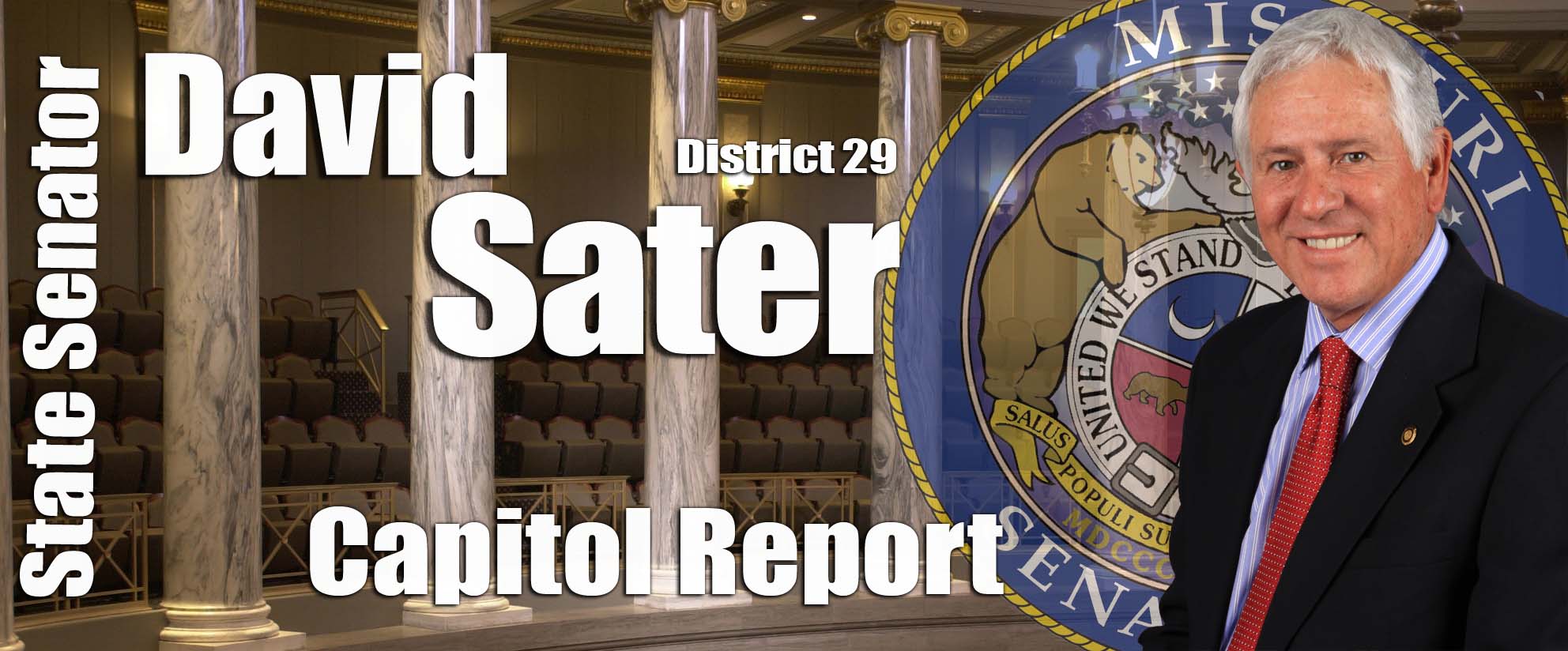
Helping Texas from Missouri
There is much that divides people in today’s world. Whether it is religious beliefs or who voted for whom and what political party one supports, these divisions have been front and center lately. The issues at the heart of those divisions are not unimportant, deserve our attention and shouldn’t be ignored or swept under the rug. But, what if for a moment, we could put those differences aside and focus on what unites us? If history has taught us anything, it’s that humans are capable of terrible heartlessness and cruelty. Humans are also capable of remarkable acts of kindness and bravery towards their fellow man. That’s what I want to focus on in this report. That kindness and courage has been on full display in our country over the past few weeks. The unbelievable damage inflicted by Hurricane Harvey in Texas and the Gulf Coast has left many homeless, displaced and without the basic necessities of life. Like so many around the country did for Missourians in the aftermath of the Joplin tornado, or when much of our state was underwater earlier this year, Americans are coming together to help one another. From rescue stories, to outpourings of support both material and financial, to folks opening up their homes to those with nowhere to go, there is so much to be proud of when you see how Americans are stepping up to help Texas.
Now, I know many in southwest Missouri are doing their part, but if you are still looking for a way to help, the Federal Emergency Management Agency (FEMA) has put together a list of the most effective ways to do that. FEMA discourages donations of unsolicited goods, such as used clothing, household items, medicine or perishable food at this time. Instead, FEMA says cash donations to trusted and reputable charitable organizations better addresses the needs of those affected by Harvey. Volunteer agencies and faith-based organizations have more flexibility with monetary donations to buy resources needed immediately and the money goes back into the local economy. Convoy of Hope and Samaritan’s Purse are two such organizations I know and trust. Every dollar donated to these charities goes towards supplies and to helping those in need. Blood donations are also needed (http://www.redcross.org/give-blood). FEMA also suggests going to the National Voluntary Organizations Active in Disaster (NVOAD) website for volunteer options.
Most of all, we should remember that needs of Texans affected by Harvey won’t end this week or next. They will need the help of Americans and Missourians in the weeks, months and years to come. Let’s meet that challenge and show ourselves, and one another, that we are more than just the sum of our differences. That we can transcend the problems of this country and breathe a bit of goodwill and humanity into one another’s lives.
On the legislative front, the annual veto session is coming up next week. This is a time when the Senate and the House meet to consider bills vetoed by the governor after the legislative session ends. As one would guess, veto session typically takes on more significance when the General Assembly and governor’s office is controlled by the opposite party. During former governor Jay Nixon’s terms of office, the Senate and House set numerous records for veto overrides. In each of my first four years in the Senate, the Legislature voted to override a Nixon veto of one of my bills. During his time in office, we successfully overrode 96 vetoes of bills and budget measures by Gov. Nixon. Prior to 2013, the Legislature had overridden only 12 vetoes since Missouri became a state in 1821, and for 120 years — 1855 to 1976 — no vetoes were overridden at all.
With a new governor this year, there were far fewer vetoes and thus, fewer veto overrides to consider. However, those few are important issues and veto session will be anything but dull. House Committee Bill 3 is among the vetoed bills of interest. With a challenging budget situation this year, the Legislature pulled about $35 million from various state funds into general revenue as a one-time payment to prevent cuts to nursing homes and in-home and community-based services. The governor didn’t agree with this one-time infusion of money, citing the fund swap could cause additional withholds in the budget and become a problem again next year when the one-time money runs out. This is a challenging issue. These services help seniors and disabled Missourians with chores around the home and respite care, thereby allowing them to live independently and avoid higher mode costs of care like the hospital, emergency room and the nursing home. I have always supported funding for these services and believe that cutting them will cost-shift to other programs and other services that the state will end up paying for regardless. That being said, I also don’t believe in one-time fund swaps. It is not the best way to solve our budget problems and will put us in the same position next year. The people elected me to solve problems, not kick them down the street. A veto override of HCB 3 would originate in the House so we will see if one is attempted.
As always, I welcome your ideas, questions and concerns about Missouri government. You may contact me at the State Capitol as follows: (573) 751-1480, david.sater@senate.mo.gov or by writing to Sen. David Sater, Missouri State Capitol, Room 416, Jefferson City, MO 65101.
